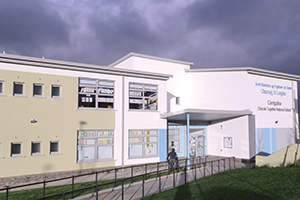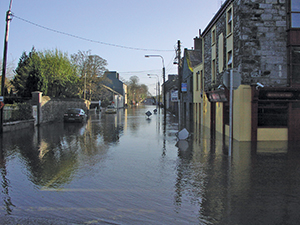Investing in Cork and Kerry
While much of the focus in infrastructure is in the east and Dublin, DPER has published an overview of its investment in Cork and Kerry.
High-quality infrastructure is an important element of a modern society and economy. Investing capital spending in this area strengthens economic growth and creates an environment for job creation. While much of the focus on investment in infrastructure tends to focus on Dublin, the Department of Public Expenditure and Reform has produced an overview of its plans to invest in Cork and Kerry’s schools, health care facilities, housing, policing, public transport, water services, tourism and other major projects.
Schools
The following school projects have been announced for construction in Cork and Kerry:
Clondrohid NS, Macroom; Scoil An Athar Tadhg, Carrignavar; Holy Family Special School, Charleville; Ballinspittle NS; Dromahane NS; Gaelscoil Droichead Na Bandan; Scoil Chroi Iosa, Blarney; Douglas/Rochestown Educate Together; S coil Chliodhna CNS, Carrigtwohill; Scoil Mhuire gan Smál, Blarney; St Francis College, Rochestown; Clonakilty CC; Ballintemple NS; School of the Divine Child, Ballintemple; GS Cionn tSaile; Coachford CC, Coachford; Cobh CC, Cobh; Scoil Mhuire Lourdes, Carrigaline; Shanbally NS, Ringaskiddy; St Johns Girls NS, Carrigaline; St Killians School, Bishopstown; St Kevin’s School, Infirmary Road; Ringaskiddy Lr Harbour NS; Hamilton High School Sacred Heart School, Clonakilty; Gaelcholaiste Mhuire, Cathedral Road; St Patrick’s College, Gardiner’s Hill; Colaiste Ghobnatan, Baile Mhic Ire; Coláiste Choilm, Ballincollig; Ballincollig CS; St Peters CS, Passage West; New primary, Ballincollig; SN Mhuire na mBraithre, Tralee; Listellick NS, Tralee; Gaelcholáiste Chiarraí, Trá Lí; Clochar Daingean & Scoil na mBraithre; Gaelscoil Lios Tuathail; St. Brendan’s, Killarney; St Brigid’s, Killarney; Scoil Mhuire, Knocknagoshel; Tralee Educate Together.
coil Chliodhna CNS, Carrigtwohill; Scoil Mhuire gan Smál, Blarney; St Francis College, Rochestown; Clonakilty CC; Ballintemple NS; School of the Divine Child, Ballintemple; GS Cionn tSaile; Coachford CC, Coachford; Cobh CC, Cobh; Scoil Mhuire Lourdes, Carrigaline; Shanbally NS, Ringaskiddy; St Johns Girls NS, Carrigaline; St Killians School, Bishopstown; St Kevin’s School, Infirmary Road; Ringaskiddy Lr Harbour NS; Hamilton High School Sacred Heart School, Clonakilty; Gaelcholaiste Mhuire, Cathedral Road; St Patrick’s College, Gardiner’s Hill; Colaiste Ghobnatan, Baile Mhic Ire; Coláiste Choilm, Ballincollig; Ballincollig CS; St Peters CS, Passage West; New primary, Ballincollig; SN Mhuire na mBraithre, Tralee; Listellick NS, Tralee; Gaelcholáiste Chiarraí, Trá Lí; Clochar Daingean & Scoil na mBraithre; Gaelscoil Lios Tuathail; St. Brendan’s, Killarney; St Brigid’s, Killarney; Scoil Mhuire, Knocknagoshel; Tralee Educate Together.
Housing and policing
 By 2017, €204 million will be spent on the delivery of 2,566 social houses in Cork city while €62 million will see 1,058 social houses delivered in Kerry.
By 2017, €204 million will be spent on the delivery of 2,566 social houses in Cork city while €62 million will see 1,058 social houses delivered in Kerry.
Capital spending on policing in Cork and Kerry includes the delivery of new Garda stations for Macroom and Glanmire, refurbishment of Tralee Garda Station, refurbishment of Anglesea Street station in Cork and the deployment of 180 new Garda cars.
Health
Capital spending on health in Cork and Kerry will see the CUH Radiation Oncology Unit built as well as Primary care centres in Carrigaline, St Mary’s Hospital Campus and Charleville.
Tourism and sport
Over €180 million has been allocated in sports capital and local authority swimming pool funding for Cork since 2011, with €4.75 million allocated for Cork projects under the 2015 Sports Capital Programme.
€3.75 million has been allocated in sports capital and local authority swimming pool funding for Kerry since 2011, with €950,000 allocated to Kerry projects under the 2015 Sports Capital Programme.
Flood defence
 The 2016 allocation for flood defences includes commencement of flood relief schemes at Bandon and Skibbereen. The programme of works includes the advancement of Douglas and Glashaboy, while Cork City and Clonakelly will progress through design stages.
The 2016 allocation for flood defences includes commencement of flood relief schemes at Bandon and Skibbereen. The programme of works includes the advancement of Douglas and Glashaboy, while Cork City and Clonakelly will progress through design stages.
Irish Water
Over €180 million has been invested to upgrade water infrastructure while a further €48 million has been spent upgrading drinking water and supply in Cork City and County. Irish Water has plans to invest a further €33 million to upgrade drinking water quality and supply.
In County Kerry, Irish Water has invested €12.5 million since January 2104 and plans to increase this to €63.5 million by the end of 2018 with future projects including the €1.2 million project to replace 8km of defective watermains around Glenbeigh, Killorglin, Muckross, Kilgobnet and Sneem.





